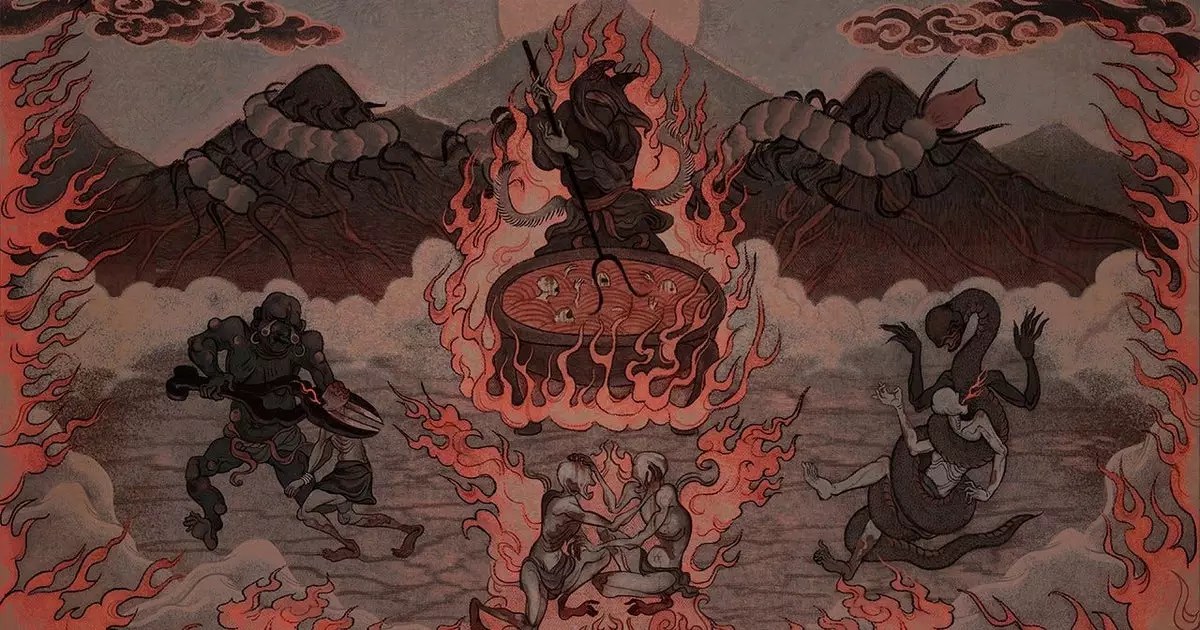In the increasingly crowded genre of horror gaming, “Labyrinth Of The Demon King” boldly stakes its claim as a visceral homage to classic survival terror. It’s a game that throws players headfirst into a swirling abyss of psychological dread, reminiscent of the ghastly ambiance found in iconic titles like *Silent Hill* and *Amnesia: The Dark Descent*. Its release marks a daring venture into the squalid depths of mythical feudal Japan, where despair lurks behind every corner and danger is as prevalent as the whispering shadows that populate its world.
At its core, the game offers a gritty narrative: the player embarks on a frantic quest driven by the need to confront a formidable yokai boss, whose treachery led to the downfall of their lord. However, this premise is not merely a spawn of classic storytelling; it acts as a framework upon which the deeper cyclical nature of horror unfolds, steeped in relentless encounters with grotesque adversaries and disorienting environments that will unnerve even the most seasoned gamers.
Survival Amidst Squalor
From the outset, the gameplay mechanics dangle precariously between action and survival horror, heavily leaning towards the latter. The controls feel intentionally cumbersome, as if to replicate the inadequacy of navigating through real fear. Fueled by nostalgia, the design evokes the atmospheric malaise of yesteryear’s titles, inviting players to explore an unsettling labyrinth populated by grotesques—be it the ominous, squelching fungus or the cursed inhabitants who call it home. In a brilliant maneuver, the developers have reinforced the sense of danger not just from outward threats but also the frailty of the player’s capabilities.
Weapons are scant and often disappointingly ineffective. Starting with nothing more than a broken katana and a few inadequate supplies, each encounter transforms not just into a fight for survival but an exercise of strategy amidst chaos. This fragility is compounded by a health system that punishes players for even the smallest missteps—a design decision that shocks the senses and keeps players on edge. The futility of facing these grotesque caricatures of foes, who skitter and screech with malicious intent, serves to heighten tension and drive the instinct for self-preservation.
A Universe of Nightmarish Details
What truly sets “Labyrinth Of The Demon King” apart, however, is its atmosphere—a sinister symphony of sound, visuals, and storytelling that plunges players into a visceral nightmare. Each aspect of the design meticulously encapsulates the nostalgic dread of earlier survival horror experiences. The game’s graphical style evokes the melancholic gloom of the PlayStation era, with its dithering and hazy filters that obscure and distort the edges of reality. This visual representation complements the soundscape, as eerie echoes and unsettling noises permeate the environment, enhancing the sensation of being perpetually hunted.
Despite the buried intricacies of its design, the game thrives on straightforward, terrifying concepts. Unlocking doors may lead to new horrors instead of refuge; the intrigue of exploration is constantly mixed with a palpable fear of the unknown lurking behind every corner. The very act of climbing to higher ground—unbeknownst to the player—becomes harrowing when simply seeking an item spirals into an unwanted confrontation with the lurking terrors above.
A Misguided but Gripping Experience
Even the interactions within this nightmarish realm hold layers of complexity. Players can dash for survival, swing wildly with limited effectiveness, and encounter a myriad of disturbing creatures. Yet, what stands out is how engagingly oppressive every aspect of the game feels. Although it presents a set of classic survival game tropes, it simultaneously undermines players’ expectations—ensuring that they are never comfortable, lest they mistakenly presume they are safe.
It’s the kind of unsettling experience that invites resilience. Players are compelled to confront their fears while silently battling an internal urge to retreat into the darkness rather than face the horde. The enigmatic nature of the game weaves a tapestry of tension that resonates with the audiences, blending the thrill of discovery with the fear of what lies ahead, all while offering a sense of solidarity in the shared experience of dread.
As I delve deeper into the resonating darkness of the *Labyrinth Of The Demon King*, it’s clear that this haunting game does not seek to merely entertain; it aims to encapsulate the very essence of fear itself, challenging players to confront their own demons amidst the relentless waves of despair.


Leave a Reply